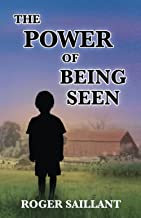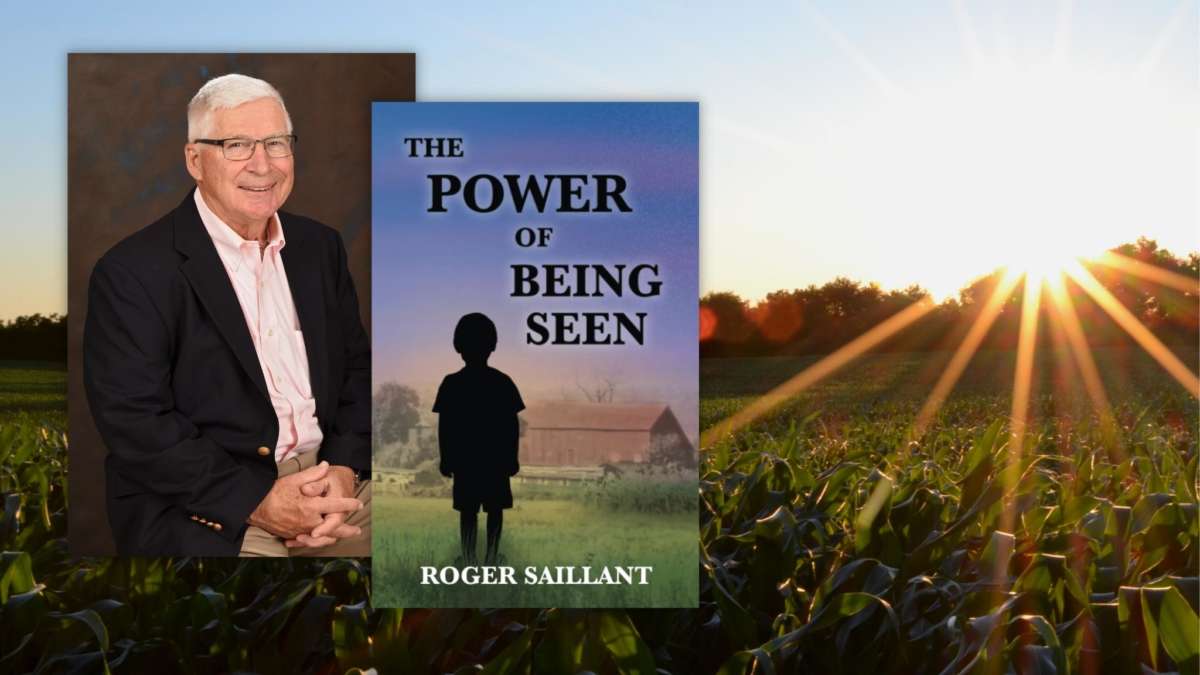The Power of Being Seen by Roger Saillant
“We are too quick to make assumptions about others based on how they present to us rather than really seeing them and understanding more about who they are.”
Really seeing them. That’s a key message in the memoir from Roger Saillant about his life growing up in the foster care system in the 1950s. Is it any wonder he titled the book,The Power of Being Seen?
It’s an emotional work in which Saillant constantly doubts himself while trying to act normal to the outside world. Did he do something wrong? What’s the matter with him? He describes acutely his feelings of abandonment, helplessness, anger, resentment, and hopelessness to the point of contemplating suicide, but the values instilled by many caring adults make this a story of optimism, vision, creativity, courage, sensitivity and, most of all, inspiration.
In a recent interview, the author takes us on a deeper dive into his story — the experience, the inspirations and the lessons.
Q: Why did you write this book?
A: I wanted “to show,” from my marginalized child’s point of view, the emotional ups and downs I experienced when I was either seen or unseen as I grew up. There are many marginalized children in the world. I believe that they would all benefit, as I did, if adults would “see them” and try their best to give them the appreciation and guidance that is given to children in biological families. Being seen and heard is a powerful force for people of all ages and cultures.
Q: What did you find as the most difficult aspect of your childhood, upbringing and growing up?
A: I was angry that other children my age were playing while I had to work. I felt guilty when I slipped away and did not work. The guilt grew unbearable when I prayed that one of my foster parents would die, and my foster mother did die slowly from cancer. Ultimately, I became two people. I tried to be outgoing in school while remaining secretive and brooding on the farm.
Q: Looking back, how would you best describe the foster care system that you were a part of?
A: I believe the foster care system operated to provide homes for abandoned children which offered the best possibility for the child to become an independent productive citizen. The seemingly less talented children were placed on farms where they would learn manual skills sufficient to support themselves as adults. Those children placed on farms were serviced by the least experienced social workers who were unaware of or ignored the true circumstances for the child. I think the foster care system was underfunded and the social workers were stretched to their limit. Underfunding the foster care system exists today.
Q: What was the hardest part of the book to write?
A: I wanted to describe my experiences growing up as honestly as possible. I wanted a balanced report. This meant describing the hardships without dwelling on them and showing that there was adventure and humor in my childhood, too. I wanted to convey gratitude to those who helped me along the way and make it clear that I was not a self-made person. I was flawed, and only through messages from a few did I carve out a useful workable value system. Like most children, I took good steps and missteps, and experienced sadness and joy. Some exceptional adults provided guardrails. I hope that readers will do that for others.
Q: What person provided the most inspiration to you on your journey, and why?
A: I was inspired when I read about people like Benjamin Franklin and Abraham Lincoln and learned how they overcame hardships in their lives to become successful. I was guided by the caring wisdom of my longest tenured foster mother, Mrs. McClelland. Teachers like Miss Hanisch in the fifth and sixth grades and Mrs. Porter in my senior year in high school saw me and gave me great life advice. I was helped by outsiders like Mr. Moyer who bought my produce, the VanAlstynes whom I visited ostensibly to deliver eggs every Thursday night, and other good neighbors.
Q: What do you hope readers take away from this book?
A: I hope readers will identify with some of the states of mind in this book and become motivated to see others whom they encounter with more heartfelt care. I believe that we are too quick to make assumptions about others based on how they present to us rather than really seeing them and understanding more about who they are. The kindness of really seeing others could alter their lives. Readers might be encouraged to pay more attention to others in their lives, especially marginalized children and adults. Being seen is powerful — it sure was for me.
About Roger Saillant:
Roger Saillant was a child of the foster care system for 18 years. Despite challenging childhood circumstances, he graduated from Bowdoin College and earned a Ph.D. at Indiana University. He worked for 30 years for The Ford Motor Company, became CEO of Plug Power, and ultimately was appointed an Executive Director and adjunct professor at Case Western Reserve University. He co-authored the environmental thriller, Vapor Trails, with RP Siegel and was one of several co-authors of the book, The Flourishing Enterprise. He lives in Saratoga Springs, NY, with his wife, Mary Lou, where he writes, consults and raises wildflowers.





